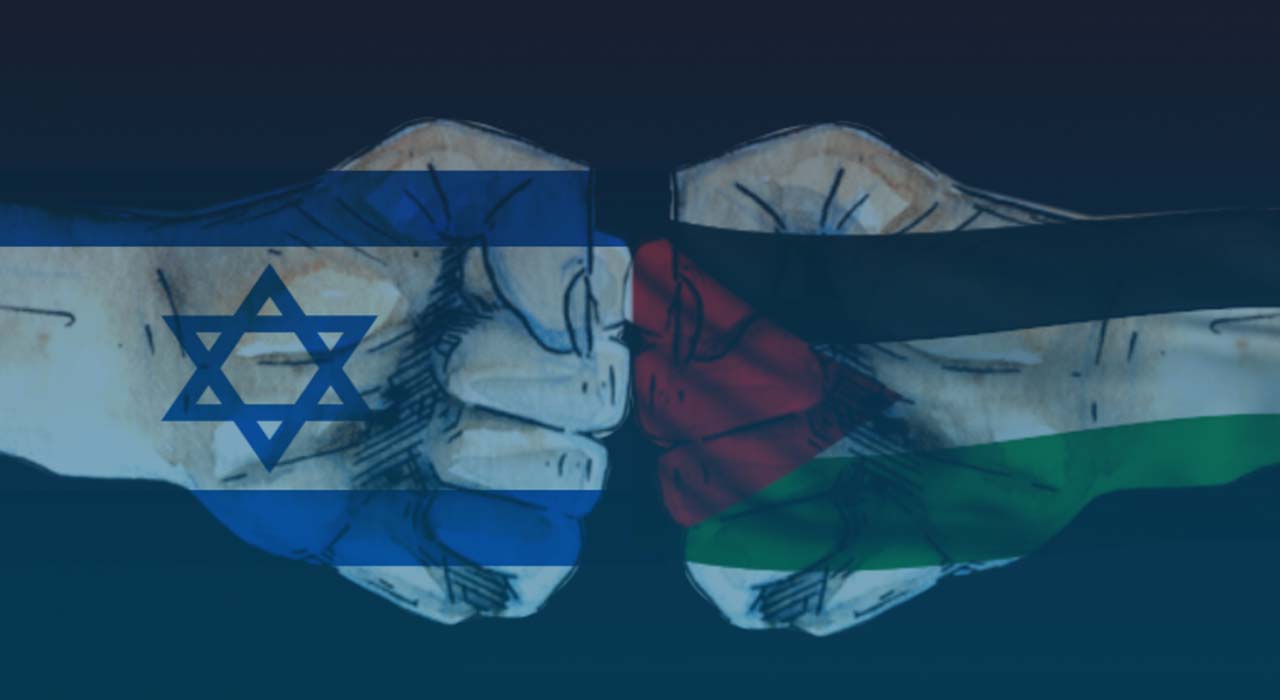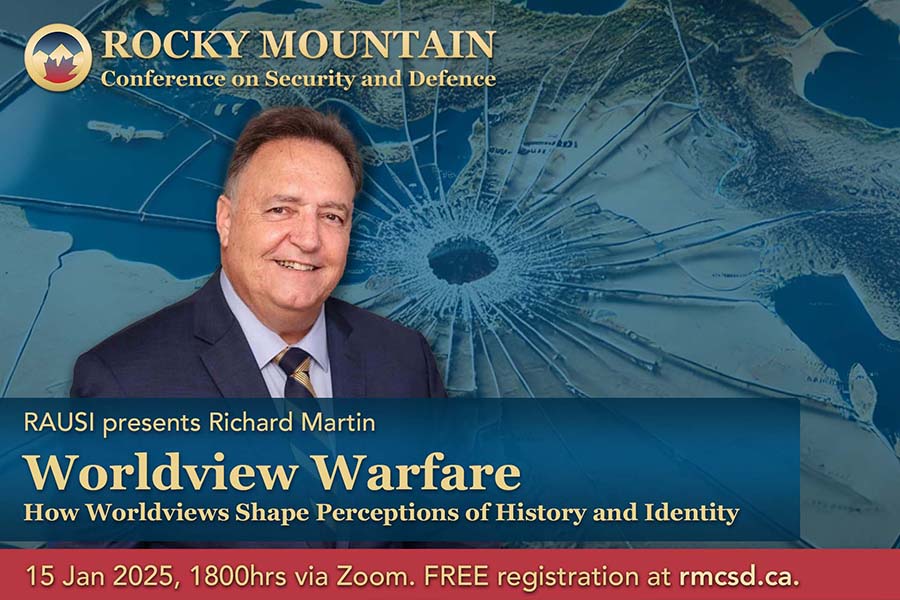5 February, 2025
The Israeli-Palestinian conflict has long defied resolution, driven by fundamentally irreconcilable worldviews. Central to the failure of diplomatic solutions, including the two-state solution, is the persistent Palestinian rejection of Israel’s right to exist. As long as this rejectionism remains entrenched, diplomatic and conciliatory approaches will continue to fall short. However, as full-scale military conquest or mass displacement of Palestinians presents unacceptable risks, the most viable path forward is a robust containment strategy supported by long-term psychological, political, and economic measures.
The Failure of the Two-State Solution
The two-state solution is widely supported by the international community and many Israelis who adhere to a conciliation worldview, which envisions peaceful coexistence through negotiated territorial compromises. However, this approach has consistently failed due to the rejectionist stance held by the majority of Palestinians. For many Palestinians, the entire land is an indivisible part of Dar al-Islam, making any recognition of Jewish sovereignty unacceptable.
Palestinian rejectionism is rooted in several core beliefs:
- Religious and Nationalist Worldviews
The land is viewed as a sacred Islamic trust (waqf) that cannot be ceded to non-Muslims. - The Right of Return
The insistence on the right of millions of Palestinian refugees and their descendants to return to Israel reflects the belief that Jewish sovereignty is temporary and illegitimate. - Militant Strategies
Groups like Hamas pursue a combination of armed struggle, demographic strategies, and international propaganda to undermine Israel’s legitimacy and security.
Given these deeply embedded views, attempts to achieve peace through territorial partition have been ineffective and, in many cases, counterproductive. This reality necessitates a shift from conciliation to containment.
Why Indigeneity Claims Are Moot
Both Israelis and Palestinians often invoke historical claims of indigeneity to justify their respective rights to the land. Israelis trace their lineage back to ancient Israel, while Palestinians emphasize continuous residence in the region. However, as I have described elsewhere, historical narratives are tools of strategic justification rather than decisive factors in resolving conflicts. In practice, what matters is not whose ancestors lived on the land first, but which side can assert and maintain control through effective strategy.
Key Components of the Containment Strategy
- Robust Containment of Hamas and Other Rejectionist Factions
The primary objective is to isolate and weaken Hamas and similar factions politically, militarily, and economically. Containment involves a multifaceted approach:- Military deterrence through targeted operations to degrade Hamas’ military capabilities.
- Economic sanctions targeting funding streams from Iran, Qatar, and other external backers.
- Strict controls on goods and movement to prevent weapons smuggling while allowing humanitarian aid under international supervision.
- Dismantling UNRWA and Ending Perpetual Refugee Status
As Wilf and Schwartz argue in The War of Return, the continued classification of Palestinians as refugees perpetuates the conflict. UNRWA’s role must be dismantled and replaced with neutral international agencies like the UNHCR. This step involves:- Phasing out refugee camps in Gaza and the West Bank.
- Reassigning responsibilities for humanitarian aid to non-politicized organizations.
- Encouraging individual resettlement and integration into host countries while avoiding large-scale relocations that could destabilize the region.
- Gaza as a Defeated Entity Under Strict Supervision
Gaza should be treated as a defeated entity, not as a territory under negotiation. This requires:- Non-UN international supervision to manage reconstruction and aid distribution.
- Strict sanctions on Gaza until Hamas disarms or is replaced by a cooperative governing authority.
- Providing humanitarian aid directly to the population without empowering Hamas.
- Limited and Managed Emigration
Large-scale displacement of Palestinians is neither feasible nor desirable, as past experiences in Jordan and Lebanon have shown. Instead, emigration should be encouraged through controlled, small-scale programs:- Financial incentives for families seeking resettlement.
- Diplomatic agreements with host countries to ensure successful integration.
- Long-Term Worldview Change: Education and Psychological Campaigns
As Daniel Pipes suggests in Israel Victory, changing Palestinian worldviews is essential for long-term peace. Containment must be accompanied by efforts to reshape societal narratives:- Overhauling Palestinian educational materials to remove incitement and rejectionist ideology.
- Media campaigns promoting narratives of coexistence and economic progress.
- Programs aimed at exposing younger generations to positive examples of peaceful development.
- Strategic Partnerships with Regional Powers
The success of this containment strategy depends on the support of key regional actors, including Saudi Arabia, the UAE, and Turkey. Diplomatic outreach should highlight that Palestinian rejectionism, fueled by Iran, poses a threat to regional stability. Partnerships should focus on:- Joint efforts to curtail Iranian influence.
- Collaborative development projects in Gaza under international supervision.
- Diplomatic pressure on Palestinian leaders to moderate their positions.
Why Containment is Preferable to Full Military Action
Proposals for full-scale military reconquest or forced population transfers—such as Trump’s hypothetical idea of expelling the Palestinian population from Gaza—are both impractical and dangerous. Such actions would likely provoke:
- Robust international backlash from allies and global institutions.
- Regional destabilization, with neighboring countries like Jordan and Lebanon potentially facing renewed unrest.
- Insurgency risks within Gaza, creating long-term security challenges for Israel.
In contrast, containment provides a more sustainable approach, protecting Israeli security without overcommitting its military or igniting widespread chaos.
Mitigating Risks
- Continued External Support for Hamas
Strengthen international coalitions to pressure Iran, Qatar, and Turkey to limit funding for militant groups. - Humanitarian Concerns
Ensure that humanitarian aid is strictly monitored and does not empower rejectionist leaders. - Resistance to Dismantling UNRWA
Frame the dismantling of UNRWA as a step toward Palestinian self-sufficiency and normalization.
Conclusion: The Path Forward
The persistent rejection of Israel’s legitimacy by Palestinian factions renders traditional diplomatic solutions ineffective. While military conquest is not a viable option, a robust containment strategy offers a realistic path forward. By combining strategic dominance with targeted psychological and political efforts, the international community, under American leadership, can gradually undermine rejectionism while maintaining security.
This approach requires sustained support from the U.S. and Western allies, as well as cooperation with regional powers. With measures such as dismantling UNRWA, imposing strict sanctions, and promoting controlled emigration, the containment strategy aims to weaken rejectionist factions while fostering long-term societal change. In the end, only through a combination of deterrence, containment, and strategic worldview shifts can Israel hope to achieve lasting security and stability.
Comment on this article on LinkedIn.
About the Author
Richard Martin is the founder and president of Alcera Consulting Inc., a strategic advisory firm specializing in exploiting change (www.exploitingchange.com). Richard’s mission is to empower top-level leaders to exercise strategic foresight, navigate uncertainty, drive transformative change, and build individual and organizational resilience, ensuring market dominance and excellence in public governance. He is the author of Brilliant Manoeuvres: How to Use Military Wisdom to Win Business Battles. He is also the developer of Worldview Warfare and Strategic Epistemology, a groundbreaking methodology that focuses on understanding beliefs, values, and strategy in a world of conflict, competition, and cooperation.
© 2025 Richard Martin


